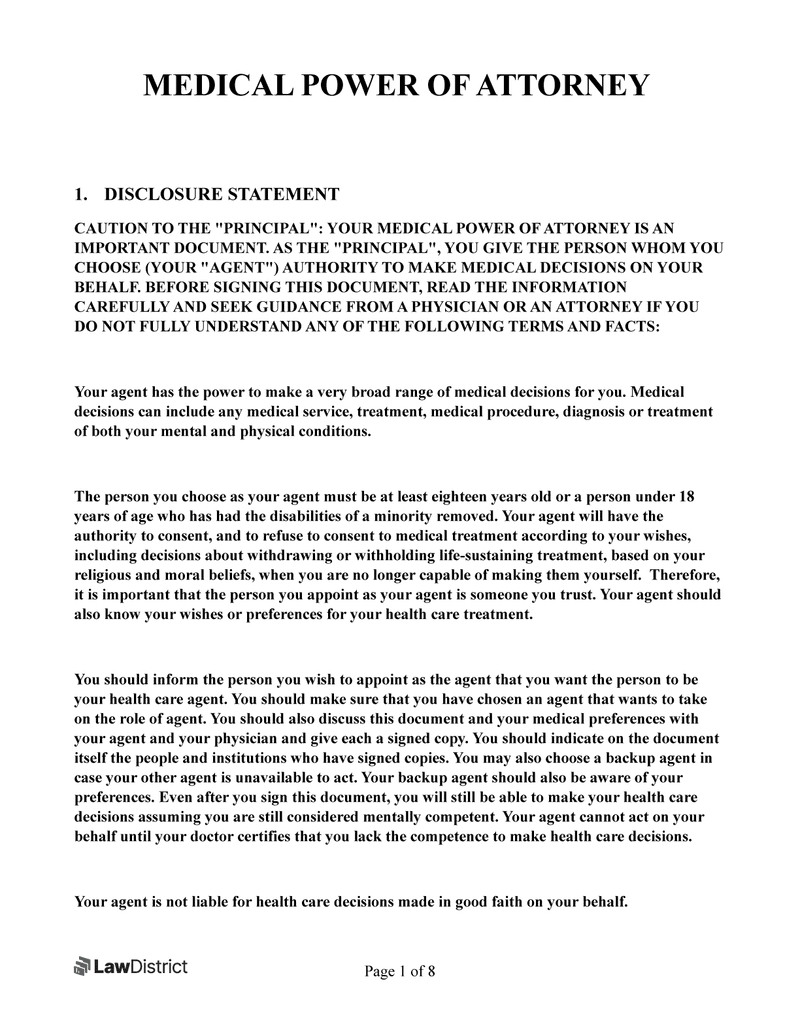The process of getting a Medical Power of Attorney is quite similar to other POAs. You can either complete a Healthcare POA form yourself, or you can seek out an Attorney at Law to help you draft the document.
It is possible to find free blank Medical Power of Attorney forms both online and from your healthcare provider. These will give you all you need to name and authorize an Agent to act on your behalf for your medical needs.
Below are the key steps you need to follow to create your own MPOA form.
Choose an Agent
As a Medical POA can grant significantly far-reaching powers, your Attorney-in-Fact needs to be carefully chosen. It doesn’t necessarily have to be a member of your family, but it should always be someone you trust.
You should also speak at length with your prospective Agent to be sure that they consent to the responsibility you’re giving them. Additionally, you must give a very clear picture of what your wishes are regarding your future medical treatment.
There’s also the option to choose a successor or 2nd Agent in case the primary Agent is not able to complete their duties. If desired, you can even set up a compensation plan for the Agent.
Define Agent’s Authority
The next stage of creating your document is to clearly define the powers that you will give to your chosen Agent.
Consider carefully your personal health care situation, and what kind of decisions you will need the Agent to take, either in the short or long term. It’s also important to consider when you want to empower the Agent to act. You can also set a triggering event, such as when a doctor deems you unable to give consent for yourself or start a date for their authority.
You should define the following Agent powers in your POA:
- End of life decisions
- Hospitalization
- Medical treatment
- Psychiatric treatment
- Nursing home care
- Homestay care
- Organ donations
Add a Living Will
Although not mandatory, adding a living will to your MPOA is highly recommended by many legal and health care experts. This will help you outline your end-of-life treatment selections, in addition to having someone to speak on your behalf.
By using a living will, you will be able to define what you want to happen in case you were to end up in an incapacitated state without a chance for a cure. It also allows you to choose post-death options such as organ donation.
Sign According to State Requirements
Once your form is completed, it will then need to be signed by both the Principal and the Agent according to the respective state signing laws. In most states, the form will have to be signed in the presence of two witnesses and/or a notary public. The Principal must also be of sound mind and be able to sign the document out of their own free will.
After it has been finalized, you should then file the form with your healthcare providers so that they have the document on record. This will speed up its use in the future.
Be aware, there are five states which require Principals to provide detailed instructions on their Healthcare POA. Standard forms just appointing an Agent will not work in these locations. These states are:
-
Indiana
-
New Hampshire
-
Ohio
-
Texas
-
Wisconsin
